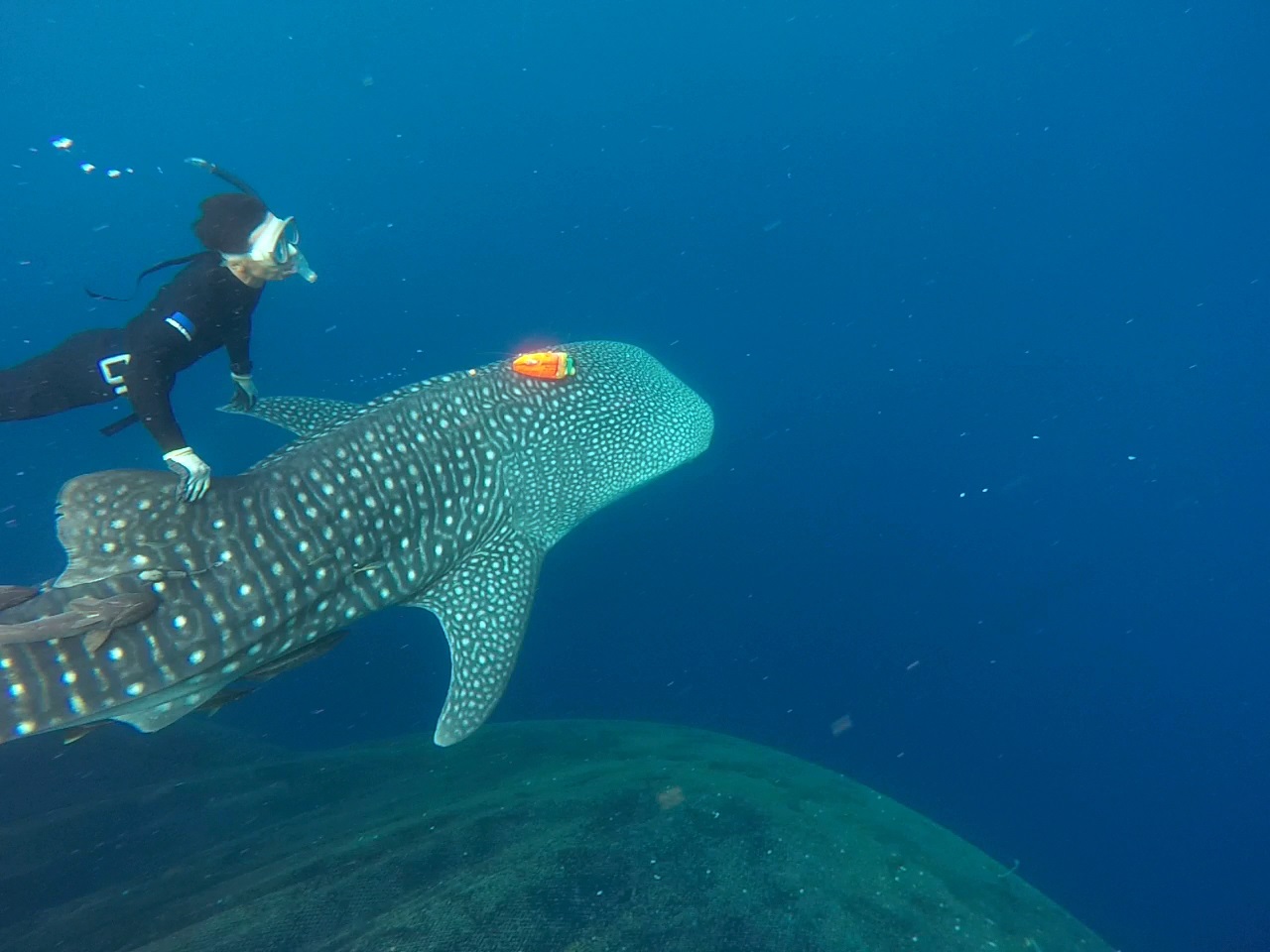June 02, 2020
Body temperature stability of whale sharks
A paper on the stability of body temperature in whale sharks has been published in the Journal of Experimental Biology by a research group at the Organization for Marine Science and Technology, Nagasaki University, Okinawa Churaumi Aquarium, managed and operated by the Okinawa Churashima Foundation, and Atmosphere and Ocean Research Institute, the University of Tokyo.
(URL http://jeb.biologists.org/lookup/doi/10.1242/jeb.210286.)
Water has a large thermal conductivity and specific heat capacity, and the body temperature of organisms living in the water is greatly affected by the water temperature. Therefore, maintaining a body temperature higher than the water temperature is a major challenge for organisms living in the water. It is thought that animals with large bodies are characterized by large heat capacity and a relatively small body surface area to the volume, which means that their body temperature does not fluctuate easily. The whale shark is the world's largest fish, with the largest being over 12 meters long and weighing several tons. When the whale sharks were released into the wild, behavioral recorders and thermometers were attached to the sharks, and the behavior and changes in body temperature were measured for the first time in the world. When the temperature of the surrounding water changed due to vertical movements of several hundred meters, the body temperature of the whale sharks changed slowly, demonstrating the stability of the body temperature due to its large size. It was also confirmed that the upper limits of the whale sharks’ body temperature were similar to the sea surface temperature. This indicates whale sharks are not endothermic, relying on the heat they produce to maintain a high body temperature, but are ectothermic, relying on the temperature of the outside to regulate their body temperature. When we compared the whole-body heat-transfer coefficients of fishes of a wide range of body sizes, from Bluefin tuna fry less than 1 g to whale sharks greater than 1 t in this study, referring to the literature, the heat-transfer coefficients decreased in proportion to the -2/3 power of body mass, independent of ectothermic and endothermic, suggesting that the larger the body size, the less the body temperature changes. The whale sharks that we released were diving in the open ocean at a very cold depth of over 1000 m with a water temperature of 3–4°C. The reason for these dives is not clear, but it is thought that the stability of the body temperature derived from the large body makes such dives possible.
Nakamura I, Matsumoto R, Sato k (2020) Body temperature stability observed in the whale sharks, the world’s largest fish. Journal of Experimental Biology, DOI: 10.1242/jeb.210286
 |










